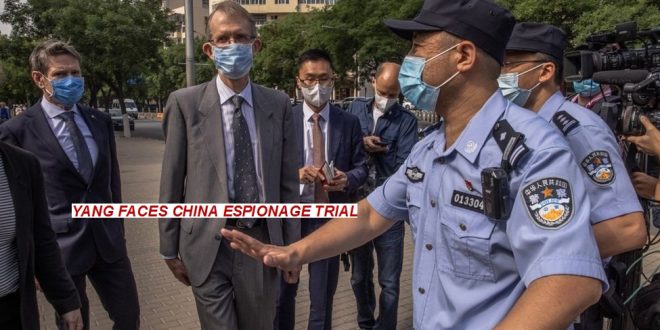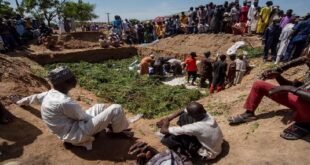27-05-2021
By SJA Jafri + Bureau Report
CANBERRA/ MELBOURNE/ BAIJING: It seems that the majority of “Australians has become spy for America” (not for themselves or their own country) while the reputation of Aussies is not only declining very fast but the rest of the world sees Australia and Australians as culprits those work for America and American interest rather than their own benefits and majority of the counties of the world are very much careful about Australians hence no country wants to issue the visa to Aussies because of their unfaithfulness, dishonesty, and immoral, illegal, unethical and criminal practices mainly for spying for others, sources told Press Media of India (PMI).
Hundreds of Australians have either been arrested, murdered, kidnapped, missed or tortured just because of their criminological mindsets, worst behavior, self-made standards, un-educational, non-professional, inexperienced and disloyal acts, practices and attitudes as they have rejected from each and every corner of the world, sources further revealed.
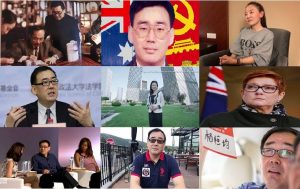 Chinese-Australian citizen Yang Hengjun is expected to go on trial in China on Thursday charged with espionage and accused of acting as a spy for the Australian government.
Chinese-Australian citizen Yang Hengjun is expected to go on trial in China on Thursday charged with espionage and accused of acting as a spy for the Australian government.
In a letter written in March and released on the eve of the trial, Yang was stoic.
“There is nothing more liberating than having one’s worst fears realized,” he wrote in the letter, which was published in Australian media. “I have no fear now. I will never compromise.
“The values and beliefs which we shared, and which I shared with my readers, are something bigger than myself.”
The 56-year old writer, blogger and pro-democracy activist was arrested in January 2019 when he arrived at Guangzhou airport with his wife and faces a possible death sentence if he is found guilty of having “endangered national security with particularly serious harm to the country and the people”. The minimum sentence is three years.
The accusation of acting as a spy for Australia has long been denied by the Australian government, with Prime Minister Scott Morrison describing the claim in 2019 as “absolutely untrue.” Canberra has called Yang’s detention “unacceptable”.
According to Amnesty International, Yang may have faced as many as 300 interrogations during his time in prison so far.
These interrogations, friend and colleague Feng Chongyi says, are designed to “extract a confession” and “fabricate a case against him”.
Feng, a Sydney-based Australian resident and self-confessed “Chinese Liberalist” was himself detained by the Chinese government for a week in 2017 after an academic visit.
“My detention was similar to Yang’s to try to establish a case of espionage,” Feng told media, “but I was extremely lucky that I escaped the fate of Yang.”
Feng says he and other liberals like Yang aim to “promote the rule of law, human rights and democratization and of course, by doing that, we criticize the current one-party dictatorship and analyze Chinese society, especially the state-society relationship.”
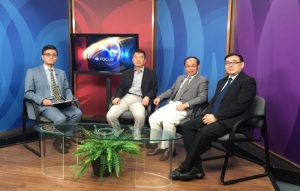 State security official to activist, novelist
State security official to activist, novelist
Feng has known Yang since 2005 as “a friend and a colleague”, describing him as “idealistic and aspirational”.
Feng confirmed that Yang worked for the Chinese Ministry of State Security (MSS) for 14 years at what he said was “a provincial level”.
But according to Feng, Yang became frustrated with his work with the MSS and began to write spy novels in order to “escape from that profession he no longer believed [in] or had any enthusiasm for”.
Such novels were based on Yang’s own experiences in the ministry and while not published in book form in China, were posted on the internet under a pseudonym.
Yang and Feng initially connected online. The former moved to Australia in 2000 and began studying under Feng at the University of Technology Sydney five years later.
In particular, Feng says, Yang would study “the probable effect of the internet on Chinese Communist rule. So by doing that, he transformed himself into a liberal”.
After Yang graduated, the two worked together on many joint publications, edited books and ran conferences on Chinese liberalism and democracy.
Feng says that Yang’s father – a head teacher and teacher “had been prosecuted by the regime [and] never had a good relationship or opinion about the Communist dictatorship”.
As such, he believes it may have been that influence, along with Feng’s tutelage, that transformed Yang from a provincial government agent to an outspoken pro-democracy activist.
Yang’s status as an Australian citizen has turned his detention and upcoming trial into an international diplomatic issue.
In a recent media statement, Australian Foreign Minister Marise Payne said that “despite repeated requests by Australian officials, Chinese authorities have not provided any explanation or evidence for the charges facing Dr Yang”.
“Since his detention, Dr Yang has had no access to his family, and limited, delayed access to his legal representation.”
The statement also raises concerns that the trial will be a closed-door affair, with no Australian officials present.
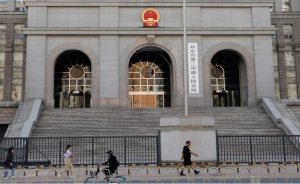 Diplomats were barred from the court when Canadians Michael Kovrig and Michael Spavor, who were detained the month before Yang and allowed only limited consular contact, were tried on espionage charges in March. Both men are awaiting verdicts. China’s courts convict 99 percent of defendants.
Diplomats were barred from the court when Canadians Michael Kovrig and Michael Spavor, who were detained the month before Yang and allowed only limited consular contact, were tried on espionage charges in March. Both men are awaiting verdicts. China’s courts convict 99 percent of defendants.
“We have conveyed to Chinese authorities, in clear terms, the concerns we have about Dr Yang’s treatment and the lack of procedural fairness in how his case has been managed,” Payne said.
“As a basic standard of justice, access to the trial for observers should be a bare minimum to conform to international norms of transparency.”
Australian-based Chinese Foreign Ministry spokesperson Zhao Lijian said that Yang’s trial would proceed under Chinese law.
“China’s judicial organs handle cases in accordance with law and fully protect the lawful rights and interests of relevant personnel,” Zhao told media when asked about the case. “As for the specific situation you mentioned, I have no information to offer you at present.”
Frayed diplomatic ties
Australia has close trading ties with China but relations have become frayed over Australia’s call for an on-the-ground investigation into the origins of COVID-19 in Wuhan where the first cases of the disease first emerged in late 2019.
Concerns are also mounting about human rights abuses against Uighur people, which has included the detention of the family members of ethnic Uighurs who are Australian citizens.
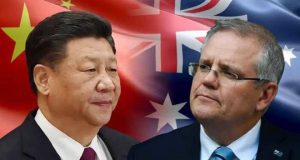 China has recently accused Uighur Australians of “terrorism” and last month Cheng Jingye, the Chinese Ambassador in Canberra, held a press conference in which he described the allegations of human rights abuses against the Uighurs as “fake news”.
China has recently accused Uighur Australians of “terrorism” and last month Cheng Jingye, the Chinese Ambassador in Canberra, held a press conference in which he described the allegations of human rights abuses against the Uighurs as “fake news”.
Nor is Yang the only Australian being held in China. Cheng Lei, a high-profile business anchor for CGTN, a state television channel, disappeared in August last year. The following month, she was accused of endangering national security.
The detentions have attracted the attention of human rights organizations globally.
The head of Amnesty International’s China Team, Joshua Rosenzweig, said this week that “the charges against Yang appear to be a politically motivated prosecution for articles he wrote that was critical of the Chinese government. This is an outrageous attack on his right to freedom of expression”.
Rosenzweig added: “Yang’s case is yet more proof that incommunicado detention, coercive interrogations, secret hearings and the flagrant denial of fair trial guarantees on nebulous charges are part of the Chinese authorities’ routine repertoire for targeting government critics and human rights activists.
“Unless China can provide concrete, credible and admissible evidence that Yang has committed an internationally recognized offence, he must be immediately released with all charges dropped.”
However, his colleague and friend holds little hope. Feng believes that the trial will not conclude, allowing the authorities to detain him indefinitely.
“The current environment and determination of the party to punish Yang means that they will give a very harsh sentence on him,” he told media.
“This is a stark violation of human rights. I need to appeal to the international community and the Australian government as well to save Yang, and save the core values of human rights as well.”
“Yang is my very close friend. I have an obligation to come to his rescue, to bring him back to Australia.”
 Pressmediaofindia
Pressmediaofindia
